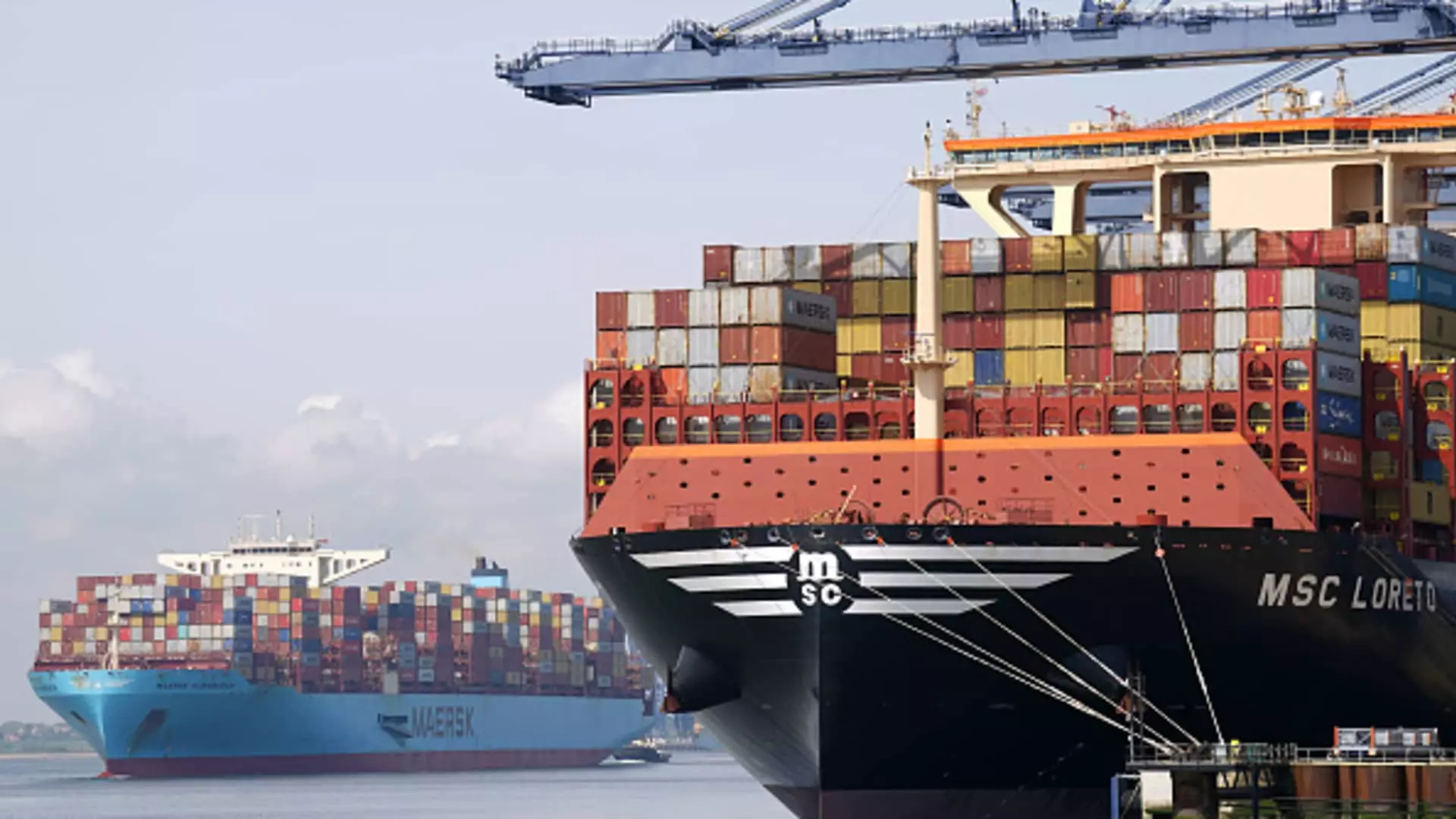The opening bell of 2025’s first-quarter earnings season rings with an unsettling resonance, echoing concerns that ripple through global markets. At the heart of this malaise are the tariffs imposed by the Trump administration—policies that have thrown a considerable shadow over investor confidence. The specter of unpredictability looms larger than ever as companies brace for the fallout of these protectionist measures, leaving them to navigate treacherous waters.
The Tariff Tsunami: A Disruption to Growth
What was initially touted as a strategy to bolster American industries has morphed into a veritable hurricane of anxiety. The widespread implementation of tariffs—in some cases as high as 25%—involves not just steel and aluminum but also targets a wide array of consumer goods. Importantly, investors and businesses alike find themselves ensnared in a labyrinth of shifting policies and retaliatory measures. The optimism that once prevailed is overshadowed by uncertainty, causing tremors in stock valuations.
While major firms attempt to reassure shareholders with projections of earnings, the reality on the ground is fraught with challenges. For instance, LVMH’s warning about vulnerabilities in categories like beauty and spirits serves as a harbinger for what may come next. When a luxury giant feels compelled to caution against potential declines in consumer spending, it highlights a troubling trend: aspirational consumers are tightening their spending as inflation and economic pressures mount.
Companies Under Siege: Tales of Two Titans
Consider the plight of Maersk, the Danish shipping powerhouse whose earnings report is scrutinized like a lifeline. Analysts predict a steep decline in earnings, signaling the tremendous strain the ongoing trade conflicts inflict on global logistics and maritime transport. The stark observation from Maersk—that U.S. tariffs are “significant” and detrimental to global economic stability—carries weight. As trade routes face upheaval, the interconnectedness of global markets reveals just how fragile our modern economy has become.
Similarly, the oil and gas sector is reeling under the pressures of fluctuating crude prices and looming recession fears. Shell’s anticipated drop in earnings encapsulates a broader narrative of vulnerability that many companies face. Despite Shell’s efforts to recalibrate its focus toward efficiency, the inescapable truth remains: external variables are often beyond their control. Investors must now brace themselves for a tempest of volatility, acknowledging that even the most astute companies are not impervious to external shocks.
The Automotive Sector: A Tale of Two Strategies
The automotive landscape is rife with uncertainty, especially for giants such as Volkswagen. As the U.S. imposes tariffs on foreign automobiles, the repercussions are felt acutely by German manufacturers who rely on transatlantic trade. With significant operations in the U.S. and thousands of American employees, Volkswagen finds itself straddling two worlds. The optimism surrounding an uptick in revenue is drowned out by forecasts of declining earnings, underscoring the dual pressures of maintaining profitability while navigating punitive tariffs.
The auto sector often serves as a bellwether for broader economic health. If conditions worsen due to escalating trade tensions, German firms could find themselves on thin ice. The looming threat of tariffs is a clarion call for manufacturers to reconfigure their strategies. This challenge represents not only an economic crossroads but a cultural one, as the manufacturing narratives intertwine with international relations.
Travel Industry Turmoil: The Impact of Perception
As earnings reports for airlines like Lufthansa approach, the intricacies of consumer sentiment become paramount. Domestic and international travel is sensitive to the political climates and trade dynamics currently at play, making it crucial for airlines to reassess strategies. Despite early optimism regarding profit and demand, recent public scrutiny surrounding U.S. products signals potential headwinds. The 17.2% decline in Western European visitors to the U.S. illustrates how political decisions ripple outward, affecting not just businesses, but global perceptions as well.
Lufthansa’s upcoming earnings announcement looms as a potential watershed moment, revealing whether the airlines can rebound from the tariff-driven fallout. It’s critical that CEOs navigate this turbulent terrain by focusing on consumer confidence, which has a direct correlation to their bottom lines.
Pharmaceutical Firms in the Crosshairs
The pharmaceutical sector faces its own ominous uncertainties, as impending tariffs cast a long shadow over U.S. revenues for companies like Novo Nordisk. The discourse surrounding drug tariffs highlights a myopic approach to healthcare that jeopardizes access and affordability at a time when it’s most essential. With investigations into pharmaceutical imports and potential tariffs, there’s a real threat to the ongoing innovation in the sector.
In a climate where the accessibility of drugs can mean life or death, a tariff regime sends a fraught message about the priorities of economic policy over public health. As these discussions progress, the implications could resonate deeply, affecting not only drug access but also the broader health outcomes for many.
While the companies reporting are formidable industry giants, the looming uncertainties showcased through this earnings season reveal a deeper malaise caused by unpredictable political landscapes. Investors, companies, and citizens alike cannot afford to remain passive observers; the stakes are too high.

